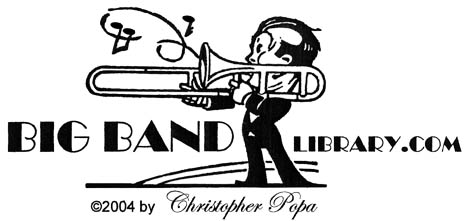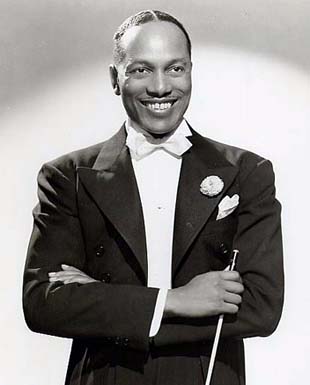
vital stats:
given name Andrew Dewey Kirk
nickname "Slim" (age 10)
birth May 28, 1898, Newport, KY
death Dec. 11, 1992, "complications from Alzheimer's disease"
father Charles Kirk, d.1961
mother Delilah Kirk, d.ca.1901 at age 26
aunt Mary Banion (half-sister to Delilah Kirk), d.1953
wife Mary Colston, b.1900?, m.Jul. 22, 1925, d.Nov. 17, 1990, "complications of pulmonary
cancer"
son Andy Kirk, Jr., a bebop saxophonist, d.1967
education public schools (Longfellow; Hyde Park; Gilpin; East Denver High), Denver, CO
hobbies baseball, boxing
memberships Local 753, American Federation of Musicians (AFM), Denver, CO; Local 627,
AFM, Kansas City; Local 802, AFM, New York City
residences 727 W. Colfax Ave., 630 W. 14th Ave., 3739 Williams St., 2435 Arapaho St.,
2516 Curtis St., 2420 Emerson St., 2410 Marion St., Denver, CO (boyhood homes);
3608 S. Parkway, Chicago, IL (1927); Apt. 14-B, 555 Edgecombe, New York City
(adult life, 1939- )
cars Buick (1940); Cadillac (1948)
Pianist Mary Lou Williams joined Kirk in 1929, giving his band much of its smooth, swinging sound with her solos, arrangements, and originals. She remained with them until 1942.
Another of the group's biggest assets, vocalist Pha Terrell, joined in 1933 and stayed for 7 years.
Trumpeter Harry "Big Jim" Lawson was there in 1929 and stayed the entire time, for some 20 years, until Kirk disbanded.
Other members of the Clouds of Joy included, at various times, Howard McGhee and Fats Navarro (trumpets); Ted Donnelly and Henry Wells (trombones); John Williams, Dick Wilson, Floyd "Candy" Johnson, Eddie "Lockjaw" Davis, and Don Byas (saxophones); Claude "Fiddler" Williams (violin), Hank Jones and Ken Kersey (piano), Floyd Smith (guitar), and June Richmond (vocals).
"By 1949 the spokes by which we had first traveled out of Kansas City had reached to the farthest corners of the country - over 300 cities in nearly every state (never did get to Vermont) and into Ontario, Manitoba and British Columbia, Canada," Kirk reminisced to Lee. "Our farthest north date in Maine was Orchard Beach, and the farthest north of all, Ironton, Michigan, on Lake Superior. Our farthest south spot was Key West, Florida, in the East, and San Diego, California, in the West . . . and farthest northwest was Vancouver, British Columbia."
A general sampling of the locations where Kirk and His Clouds of Joy played showed both big and small towns, including, to name a few, in New York City at the Apollo Theatre; in Cleveland, OH at the Trianon Ballroom; in El Dorado, AR at the Ozark Ordinance Depot; and in Kingsport, TN at the Kingsport Civic Auditorium.
"Bandleaders are not as a rule businessmen," Kirk observed to Lee. "I depended on Joe Glaser for our routes and jobs: 'You go to so-and-so, I'm getting you so much money.' . . . People may wonder if we were exploited by agents. We all were. In contracts. The bookers and managers had their own lawyers who were ours, too. That didn't make sense. Glaser got his cut, the territory booker got his cut, the ballroom or location got their cut. We had what was
left."
The best-remembered song from the Clouds of Joy's repertoire, Until the Real Thing Comes Along, was played as a ballad, featuring Terrell's vocal. The band recorded it for Decca on April 2, 1936.
"Real Thing was to widen our territory, open up new areas for jobs and help us to reach
people of all levels," Kirk commented to Lee. "It was our real breakthrough from race records, and it became synonymous with Andy Kirk."
Their other popular recordings included Walkin' and Swingin', Until the Real Thing Comes Along, Cloudy, What Will I Tell My Heart?, Little Joe From Chicago (named for booking agent Joe Glaser), I Won't Tell a Soul (I Love You), Floyd's Guitar Blues, Boogie Woogie Cocktail, McGhee Special, and I Know.
From the 1950s on, Kirk followed a variety of pursuits - some having to do with music and some not.
He went into real estate in New York City in 1952 and was a silent partner with his wife and in-law James D. Fields in The Maryetta Flower Shoppe, located in the Riverton section.
He became a Jehovah's Witness in 1953, and later played his saxophone in the orchestra which accompanied singers during their religious gatherings.
For a high-fidelity album, "A Mellow Bit of Rhythm" (RCA Victor LPM-1302), Kirk re-recorded some of his best big band material, using a group of studio musicians, in March 1956.
In August 1958, he began managing the Theresa Hotel in New York City.
He spent some time working in the office of the American Federation of Musicians Local 802.
And also, he continued into the late 1970s to put together pickup bands for concerts or dances, recalling, at least for a few hours, the two decades when his Clouds of Joy brought a mellow bit of rhythm to the public.
sources:
"Andy Kirk and the Witnesses," Down Beat, Oct. 12, 1961, p.14.
"Collins And Kirk Back: With Music, Dancing Feet," Chicago Defender, Sept. 27, 1952,
p.23.
Leonard Feather, "Kirk, Andrew Dewey (Andy)," in The Encyclopedia of Jazz (New York
City: Horizon Press, 1955), pp.300-301.
Burt A. Folkart, "Andy Kirk, 94, Led 'Clouds of Joy' Big Band," Los Angeles Times,
Dec. 17, 1992, p.36.
Charles Garrod, Andy Kirk and His Orchestra (Zephyrhills, FL: Joyce Record Club, 1991).
Kent Haze, "The Candid Andy Kirk," The Mississippi Rag, Apr. 1977, pp.6-8.
Andy Kirk as told to Frank Driggs, "My Story," The Jazz Review, Feb. 1959, pp.12-17.
Andy Kirk as told to Amy Lee, Twenty Years On Wheels (Ann Arbor, MI: The University of
Michigan Press, 1989).
Peter Watrous, "Andy Kirk, 94, Big-Band Leader Known for the Kansas City Sound,"
New York Times, Dec. 15, 1992, sec.B, p.15, col.1.
I would like to expand this tribute, if possible, with a new interview of someone who was important to Andy Kirk's life and career. Are you an alumnus of his band, a member of his family, or a collector who is knowledgeable about his accomplishments? Please contact me via e-mail
return to "Biographical Sketches" directory
go to Big Band Library homepage
The big bands are back
in a new and exciting way!
ANDY KIRK
"A MELLOW BIT OF RHYTHM,
A SUBTLE DASH OF SHOWMANSHIP"
by Music Librarian CHRISTOPHER POPA
October 2008
As an 8-year-old, he sold newspapers on the street corner and at age 20, became a mail carrier. He took up the tenor saxophone and later the sousaphone, moonlighting with various bands at night, until, in 1929, he got his own group, "Andy Kirk and His Dark Clouds of Joy."
"One of the first things I did as a leader was drop the 'dark' from the Clouds," he explained to writer Amy Lee. "I'd heard that expression back in Denver. It usually came from men hanging around in front of a saloon with nothing to do. When some of us came down the street towards them they'd remark, 'Looks like it's gonna rain. Dark clouds comin'.' I'd turn my back to them and look up at the sky, see if I saw any clouds. We became Andy Kirk and his Twelve Clouds of Joy."
